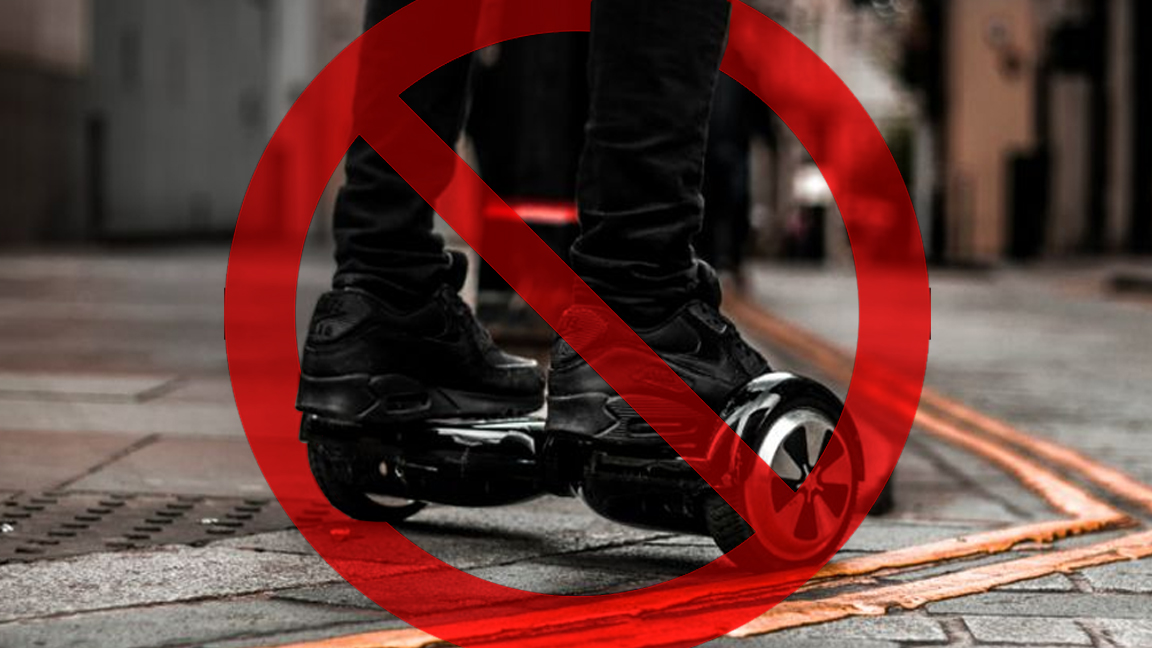The government just took a stand on hoverboards, so what happens now?
Hoverboards are getting heat from the feds ... and actual fires

The government is cracking down on hoverboards.
Okay, to be fair, it's not so much "cracking down" as it is setting some new safety standards, and not so much "hoverboards" as it is those self-balancing scooters that are known to have a penchant for exploding.
The US Consumer Product Safety Commission (CPSC) has made a public proclamation urging consumers, importers and retailers to ensure that, from now on, self-balancing scooters brought in, sold, and used in the United States comply with voluntary safety standards.
What does that mean?
Moving forward, the CPSC will deem hoverboards that don't meet certain safety standards defective and, should they continue to pose a risk to the American public, threaten to seize or recall them.
Is the government being an overly strict mother, banning 'boards in an effort to make the country less radical? Cool your jets, as the CPSC's proclamation isn't completely without reason, and is still touting voluntary self-regulation over getting Johnny Law involved.
It's worth pointing out that the federal agency doesn't seem to consider hoverboards inherently dangerous. Rather, the scooters that pose a significant fire risk are the ones that are getting the stink eye from the US government.
According to the CPSC's findings, over 50 cases of scooter-started fires have been reported across 24 different states in the span of just two and half months. $2 million in damages was amassed, including the destruction of two homes and a car.
Get daily insight, inspiration and deals in your inbox
Sign up for breaking news, reviews, opinion, top tech deals, and more.
The safety standards that the CPSC is urging buyers and sellers to adhere to refer to the hoverboards' electrical systems, primarily the use of lithium ion batteries.
Lithium batteries, while compact and powerful enough to charge hoverboards, have a reputation for immolation when housed in cheaply-made products.
The US Postal Service already set a ban on shipping hoverboards by air this past holiday, citing lithium batteries as a fire hazard. Private companies such as Amazon also recalled several brands, and this year's CES banned the two-wheeled firestarters from the show floor.
Is the hoverboard dream over?
While regulatory groups in the US government are beginning to turn a disapproving eye to hoverboards, this proclamation is far from an outright ban on the self-balancing scooter.
From what we can gather, the government's response appears to be in the vein of, "Hey, we can't have any more hoverboards exploding on us, so double-check to make sure yours are legit so that we don't have to get ourselves involved. Cool? Cool."
For the consumer, this means that if you already own a model of hoverboard - and it doesn't meet safety standards - you may receive a product recall or draw the ire of your local fire marshal.
For those still looking at getting a hoverboard, expect to shell out a bit extra as the cheaper, more volatile brands will more than likely be taken off shelves soon. That said, we hope you already value not catching on fire more than saving a few bucks.
For the rest of you who are waiting for a "real" hoverboard, you'll just have to save up 20 grand or wait for the streets to be paved in magnets.
Top image credit: Ben Larcey (Flickr Creative Commons)
